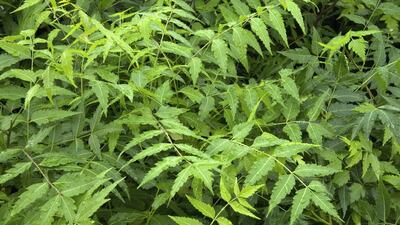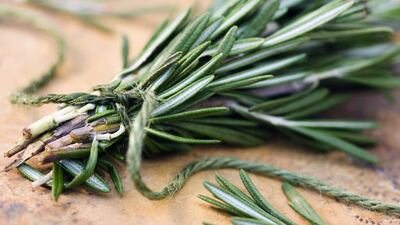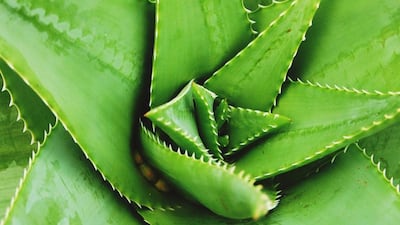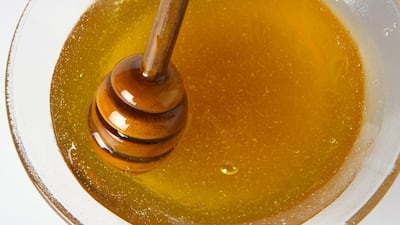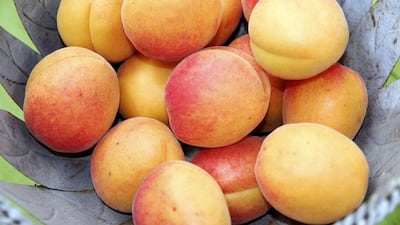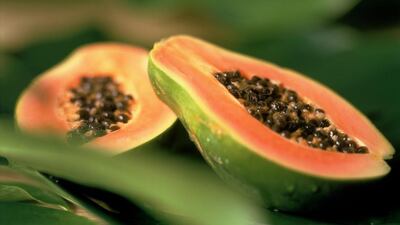The home-grown skincare line Herbal Essentials references the ancient principles of Ayurveda, one of the oldest holistic healing systems in the world. Here we take a look at the Ayurvedic plants that are found in the UAE.
Neem tree or Indian lilac (Azadirachta indica)
Grows freely in the UAE, and the juice derived from its leaves has antibacterial, anti-fungal, anti-inflammatory and analgesic properties – useful for skin treatments for those with oily or acne-prone skin, or for those whose skin is sensitive. Neem has as a long history of application in Ayurvedic treatments.
Rosemary (Rosmarinus officinalis)
The juice released from the crushed plant leaves, as well as essential oils extracted from the flowering tips of the plants, have applications for skin and beauty products. Rosemary has a distinctive and engaging scent, is rich in antioxidants and essential acids, and has had wide-ranging applications in medicine, cuisine and well being since ancient times, where it was used in Eastern and Western culture for purification and healing. Its antioxidants are believed to combat premature ageing and increase the skin’s elasticity, while its anti-inflammatory properties will eliminate puffiness. Grow it in pots or directly in the ground. When pruning, cut back only from green growth, not the woody stems, to ensure the plant rejuvenates.
Aloe vera
Studies have shown that this plant has properties that are effective in treating a variety of skin conditions. It contains antioxidants, including beta carotene and vitamins C and E, which can be helpful in improving skin firmness and hydration. Squeeze the gel-like juice directly from the leaves of this succulent and apply directly, or mix for other treatments. It’s also applied directly as an treatment for sunburn. Additionally, aloe vera is used in conditioning treatments for the scalp and hair – just dab it on, wrap in a hot towel and rinse off after 30 minutes for super-soft hair. This plant is easy to propagate and cultivate, grows in pots or directly in the soil, and is drought- and heat-tolerant.
Honey
Although obviously not a plant, honey wouldn’t exist without them, and consequently has a lot of cumulative plant goodness. Seek out pure honey (for beauty, avoid anything that is a “product of more than one country”, as the blending process removes much of the goodness). It’s an antioxidant and antibacterial, and can be applied directly to heal wounds. Honey can help to keep skin hydrated, and can rejuvenate and refresh skin, leaving it soft, as well as helping to protect it from sun damage (although it’s not a replacement for a recognised sunscreen product). It works best when mixed with other ingredients to offset its inherent stickiness.
Apricot (Prunus armeniaca)
Apricot kernel oil is a useful moisturiser, and balances oily and hormone-reactive skin, while also helping to rehydrate dry skin. The ground kernel has additional applications as an ingredient for exfoliants and skin brighteners, with the added benefit that it is biodegradable (the United States is in the process of banning some synthetic exfoliants, because their microbeads, made from small plastic spheres, are difficult to filter out at water treatment plants, and so have been a cumulative contaminant to the water supply). Apricots will grow in the UAE, but you may have to wait a long time to have enough produce to work with. It’ll take up to four years before you see any fruit, if you are planting from a pip, and your plant will require a whole lot of love and attention in the meantime.
Almond (Prunus amygdalus and other species)
Along with protecting the skin from sun damage and signs of ageing, sweet almond oil is known for its moisturising qualities, and is ideal for dry skin, as it’s easily absorbed, doesn’t block pores and is rich in vitamins E, A, B1, B2 and B6. The oil is derived from the nuts of the tree (use a press to extract, or use a blender with some added olive oil, and strain the mixed oil a couple of weeks later). Almond trees can be cultivated in the UAE, but need special care in summer.
Carica papaya
Papaya has benefits for skin and hair, and is a good source of vitamin A and the papain enzyme found in the flesh of the fruit. It can be used in treatments to brighten skin and counter skin pigmentation, as well as in scrubs and wraps. Papaya trees can be cultivated in local climates, although they will take a little time to become established before they produce fruit in quantity.
